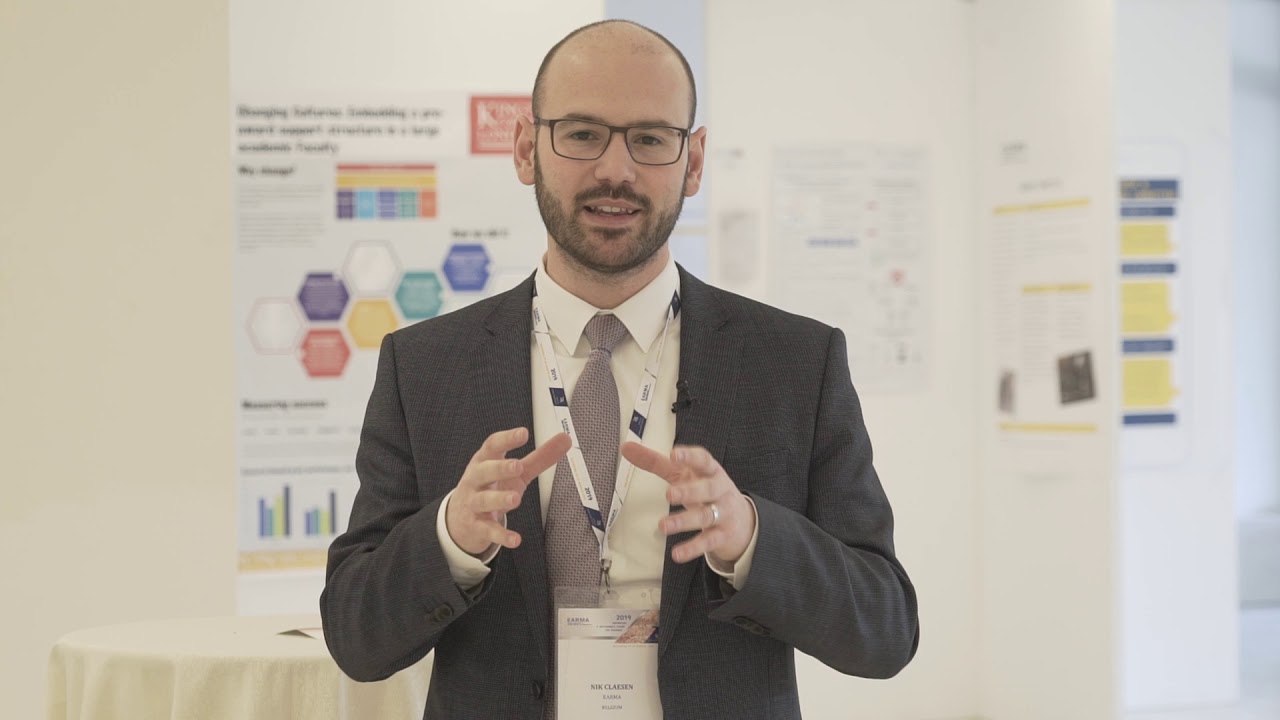“The Palgrave Handbook of Volunteering, Civic Participation, and Nonprofit Associations,” written by 200 experts from over 70 countries, defines governance as “the system by which organisations are directed, controlled, and held accountable” by structures that are “formal operating procedures for making and implementing decisions about allocating goals and resources.”
Boardroom spoke with two different association leaders—Nik Claesen, managing director of nonprofit EARMA, the European Association of Research Managers and Administrators, and Dr. Kim Fontaine-Skronski, executive director of the International Political Science Association (IPSA)—to hear their take on the ultimate question the industry is facing at the moment. In this friendly debate, these two leaders share advice associations can consider while analysing their own set of governing standards.

Kim Fontaine-Skronski 
Nik Claesen
The Face Off
How do you define governance?
Nik Claesen: I think it’s everything from getting mandates from the general assembly and rolling those out to how accountable your association is to its members and stakeholders, as well as how leadership deals with the board.
Kim Fontaine-Skronski: Governance can take on different meanings in different settings, but most definitions rest upon three specific dimensions: authority, decision-making and accountability. Governance is how society—or groups within it—organize to make decisions. It means determining who is in power, who makes the decisions, and who is accountable for them. As far as international organizations are concerned, it is a blueprint on how we choose to organize ourselves by adopting, implementing and monitoring policies.
How can associations put better standard practices in place?
NC: Standardization is extremely important. It seems to me there is quite a lack of standardization across the industry. For example, when hiring staff, if you look at what’s been set up in national legislation, and the principles used, there’s very little standardization, which leads to a situation where you have to come up with things or where you are very much dependent on how much has been done before, what procedures have already been put in place. For us, we are very volunteer-driven, we have a lot of committees doing work, so it would be good to get more standards.
KFS: One of the challenges scholarly associations face today is the need to formalize and institutionalize their governance structure. As part of the administrative reforms being implemented following the adoption of our Strategic Plan 2018-2022, the role of secretary general was transformed to the one of executive director, a change many INGOs are adopting today. The goal here is to professionalize the association, which has grown exponentially in the last decades, and to align with the stable management needs and standards of big organizations today. It has also adopted a model of governance specifying the hierarchical structure underlying the different bodies that make up IPSA: the council, the executive committee and the secretariat.
Who should be setting the standards for the industry?
NC: An association of associations, together with the relative government—although I don’t think the government should enforce too much. I think standards should be made up by the sector itself, those who are really doing the job and research, who have analysed some of the best practices that have worked.
KFS: It is challenging for any one entity to claim setting unified standards for all, given the complexity of each organization’s reality and specific parameters to take into consideration. This said, associations in specific sectors can contribute to setting standards in their particular field. For example, very few ethics codes are dedicated to the discipline of political science at this time, and legal vacuums exist in certain countries concerning various ethical issues. The IPSA president followed in the footsteps of other scholarly associations to establish a working group whose objective is to develop a codebook of professional ethics to promote the observation of ethical standards among political scientists. Since 2018, IPSA has also put in place an ombudsman service and is adopting policies to ensure transparent processes, to encourage the use of technological tools to document operations and to adopt performance indicators and measures.
This article was written by Boardroom editor Lane Nieset. The right to use it, in parts or in full, has to be granted by the Publisher.
What type of practices should associations (or yours in particular) consider when making decisions on governance and the future of the organization?
NC: Association leaders are constantly looking at how to improve or change things. There’s this movement I find very important and interesting, and that’s going entirely digital, moving everything online. You have to meet to make the magic happen. You have to speak to people, look in their face, have small talk. That’s different from having a webinar or online meeting. From a governance perspective, do you want to offer everything online or should people come together and meet each other? Do we miss a lot of things if we don’t let people engage in that way and have enough opportunities for live events? It’s about finding that synergy between live events and online content and engagement.
KFS: In this rapid changing world, we think associations must consider two important objectives when looking at their future. One is ensuring diversity of its membership and inclusiveness in its activities. To shed light on the gender representation of its affiliated national associations, IPSA has published three Gender and Diversity Monitoring Reports since 2011. Other practices include the appointment, by the IPSA president, of a Special Representative for Gender and Diversity for 2018-2020, and the adoption of IPSA’s first Gender and Diversity Action Plan. IPSA has also created a fund to help political scientists from developing countries take part in the Association’s activities. Our aim is to make every aspect of our association more inclusive and diverse. The other objective is the need to strengthen the networks that underpin the contribution of science to public deliberation and decision-making. This objective can only be met by developing, consolidating and maintaining strong ties and collaborative efforts with key international players, be they science organizations or non-governmental institutions.
The Verdict
As we can see here, theories of association governance veer in a variety of directions. Some associations adopt a two-tier governance structure, where a small group (a board or governing body) answers to a larger one (members paying dues, for example). Others believe governance is the responsibility of a volunteer board of directors, which sets bylaws and strategic direction by working closely with the association’s leadership team.
But there’s one philosophy that’s clear across the board: Associations need to develop, consolidate and maintain strong ties and collaborative efforts with key international players to strengthen their network and thereby influence the future of decision-making and the standardization of governance strategies.


